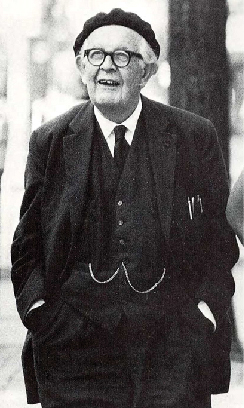| << Chapter < Page | Chapter >> Page > |
When people reach their 40s, they enter the time known as middle adulthood, which extends to the mid-60s. The social task of middle adulthood is generativity versus stagnation. Generativity involves finding your life’s work and contributing to the development of others, through activities such as volunteering, mentoring, and raising children. Those who do not master this task may experience stagnation, having little connection with others and little interest in productivity and self-improvement.
From the mid-60s to the end of life, we are in the period of development known as late adulthood. Erikson’s task at this stage is called integrity versus despair. He said that people in late adulthood reflect on their lives and feel either a sense of satisfaction or a sense of failure. People who feel proud of their accomplishments feel a sense of integrity, and they can look back on their lives with few regrets. However, people who are not successful at this stage may feel as if their life has been wasted. They focus on what “would have,” “should have,” and “could have” been. They face the end of their lives with feelings of bitterness, depression, and despair. [link] summarizes the stages of Erikson’s theory.
| Stage | Age (years) | Developmental Task | Description |
|---|---|---|---|
| 1 | 0–1 | Trust vs. mistrust | Trust (or mistrust) that basic needs, such as nourishment and affection, will be met |
| 2 | 1–3 | Autonomy vs. shame/doubt | Develop a sense of independence in many tasks |
| 3 | 3–6 | Initiative vs. guilt | Take initiative on some activities—may develop guilt when unsuccessful or boundaries overstepped |
| 4 | 7–11 | Industry vs. inferiority | Develop self-confidence in abilities when competent or sense of inferiority when not |
| 5 | 12–18 | Identity vs. confusion | Experiment with and develop identity and roles |
| 6 | 19–29 | Intimacy vs. isolation | Establish intimacy and relationships with others |
| 7 | 30–64 | Generativity vs. stagnation | Contribute to society and be part of a family |
| 8 | 65– | Integrity vs. despair | Assess and make sense of life and meaning of contributions |
Jean Piaget (1896–1980) is another stage theorist who studied childhood development ( [link] ). Instead of approaching development from a psychoanalytical or psychosocial perspective, Piaget focused on children’s cognitive growth. He believed that thinking is a central aspect of development and that children are naturally inquisitive. However, he said that children do not think and reason like adults (Piaget, 1930, 1932). His theory of cognitive development holds that our cognitive abilities develop through specific stages, which exemplifies the discontinuity approach to development. As we progress to a new stage, there is a distinct shift in how we think and reason.

Piaget said that children develop schemata to help them understand the world. Schemata are concepts (mental models) that are used to help us categorize and interpret information. By the time children have reached adulthood, they have created schemata for almost everything. When children learn new information, they adjust their schemata through two processes: assimilation and accommodation. First, they assimilate new information or experiences in terms of their current schemata: assimilation is when they take in information that is comparable to what they already know. Accommodation describes when they change their schemata based on new information. This process continues as children interact with their environment.

Notification Switch
Would you like to follow the 'Psychology' conversation and receive update notifications?